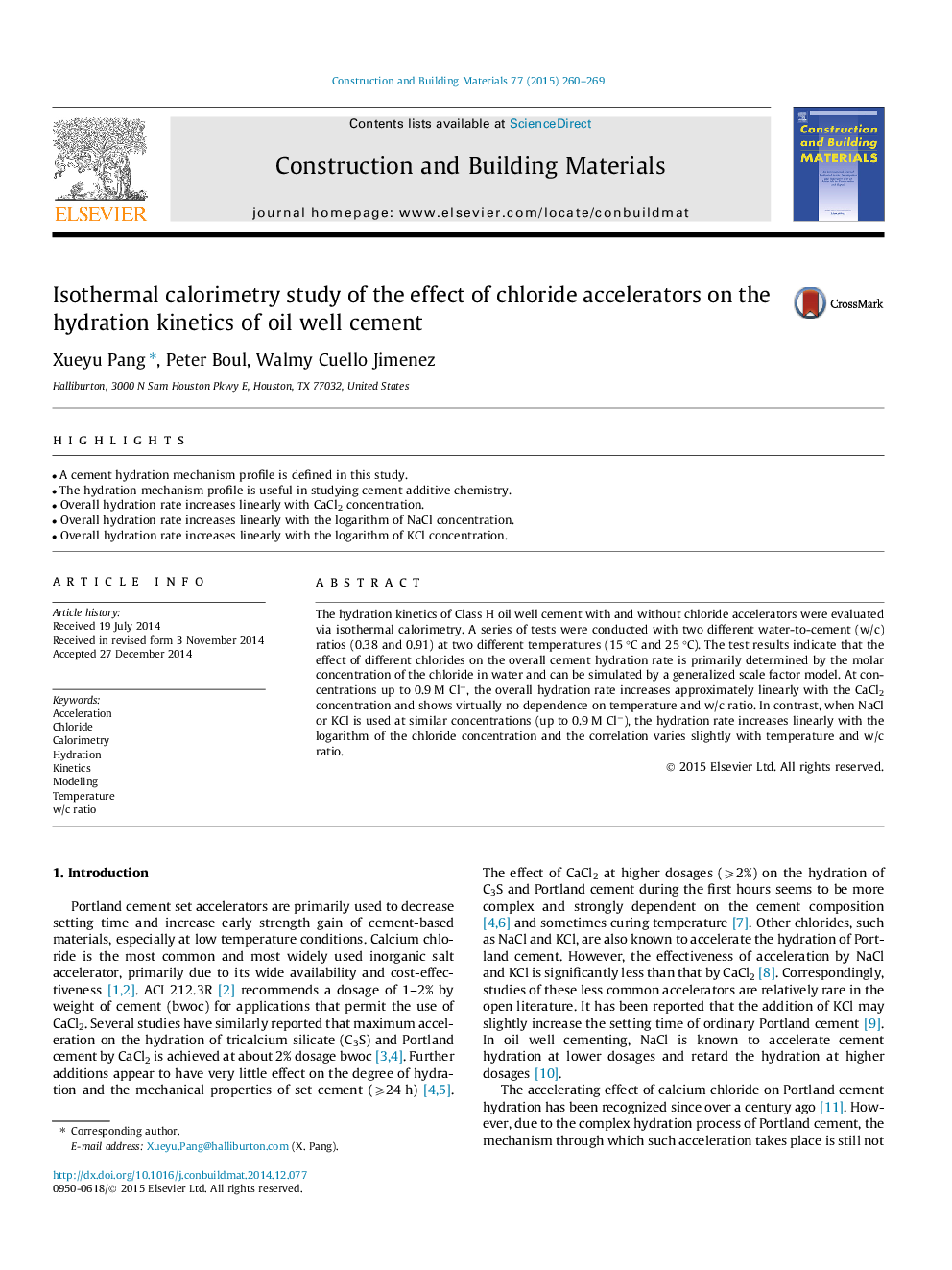| Article ID | Journal | Published Year | Pages | File Type |
|---|---|---|---|---|
| 6721636 | Construction and Building Materials | 2015 | 10 Pages |
Abstract
The hydration kinetics of Class H oil well cement with and without chloride accelerators were evaluated via isothermal calorimetry. A series of tests were conducted with two different water-to-cement (w/c) ratios (0.38 and 0.91) at two different temperatures (15 °C and 25 °C). The test results indicate that the effect of different chlorides on the overall cement hydration rate is primarily determined by the molar concentration of the chloride in water and can be simulated by a generalized scale factor model. At concentrations up to 0.9 M Clâ, the overall hydration rate increases approximately linearly with the CaCl2 concentration and shows virtually no dependence on temperature and w/c ratio. In contrast, when NaCl or KCl is used at similar concentrations (up to 0.9 M Clâ), the hydration rate increases linearly with the logarithm of the chloride concentration and the correlation varies slightly with temperature and w/c ratio.
Related Topics
Physical Sciences and Engineering
Engineering
Civil and Structural Engineering
Authors
Xueyu Pang, Peter Boul, Walmy Cuello Jimenez,
